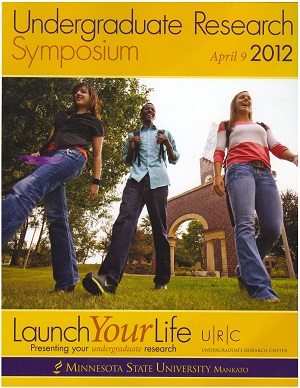Commercialization of Medicinal Plants in the Peruvian Amazon
Location
CSU 203
Start Date
9-4-2012 1:00 PM
End Date
9-4-2012 2:00 PM
Student's Major
Biological Sciences
Student's College
Science, Engineering and Technology
Mentor's Name
Timothy Secott
Mentor's Department
Biological Sciences
Mentor's College
Science, Engineering and Technology
Description
The Peruvian city of Iquitos is found in the western portion of the Amazon basin, where the majority of people rely on forest products for their health needs. People of and around the city of Iquitos have been involved in the global trade of medicinal plants long before the rubber boom that started in the late 1800s. As a result of the high worldwide demand for rubber (during the late 1800s and early 1900s), thousands of immigrants from around the globe were attracted to Iquitos. This led to a blending of beliefs and ways of living, both strongly tied to nature. The present project analyzes the current commercialization process of medicinal natural products, including the profitability, knowledge and quality of the products in the socioeconomic context of Iquitos. In that means, the results were compared to the contexts of Cuzco (Peru) and La Paz (Bolivia), where the products from Iquitos are commercialized as well. To accomplish this, semi-structured interviews were conducted between December 2011 and January 2012. Results suggest that there is a lack of balance of profitability between people who harvest the products and people who sell the products to the public. Additionally, the farther the products get from Iquitos, the lesser the quality and purity of the products and the higher the costs.
Commercialization of Medicinal Plants in the Peruvian Amazon
CSU 203
The Peruvian city of Iquitos is found in the western portion of the Amazon basin, where the majority of people rely on forest products for their health needs. People of and around the city of Iquitos have been involved in the global trade of medicinal plants long before the rubber boom that started in the late 1800s. As a result of the high worldwide demand for rubber (during the late 1800s and early 1900s), thousands of immigrants from around the globe were attracted to Iquitos. This led to a blending of beliefs and ways of living, both strongly tied to nature. The present project analyzes the current commercialization process of medicinal natural products, including the profitability, knowledge and quality of the products in the socioeconomic context of Iquitos. In that means, the results were compared to the contexts of Cuzco (Peru) and La Paz (Bolivia), where the products from Iquitos are commercialized as well. To accomplish this, semi-structured interviews were conducted between December 2011 and January 2012. Results suggest that there is a lack of balance of profitability between people who harvest the products and people who sell the products to the public. Additionally, the farther the products get from Iquitos, the lesser the quality and purity of the products and the higher the costs.
Recommended Citation
Barriga, Jose. "Commercialization of Medicinal Plants in the Peruvian Amazon." Undergraduate Research Symposium, Mankato, MN, April 9, 2012.
https://cornerstone.lib.mnsu.edu/urs/2012/oral-session-08/1




